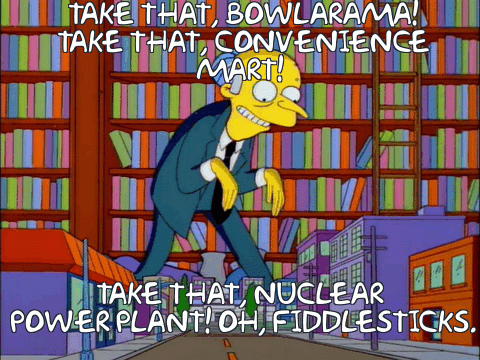Mass Effect demonstrates systemic worldbuilding. The details are consistent and logically connected. The central premise of the universe we’re presented with is that a rare element called Element Zero allows one to control the mass of an object, infinitely increasing or decreasing it (Tarantino voice: “Hence, Mass Effect”), and all technology in the story is a logical extension of that fact – for example, ships are powered by mass effect drives, and the bigger the ship, the bigger the drive necessary. Guns have tiny mass effect drives inside them that shave flakes off blocks of metal and fire them at deadly speeds. It’s possible to create barriers of various strengths using mass effect fields, from personal to ship-sized.
The pleasure of this is to see a consistent world where seemingly disparate details are actually connected; it was really neat to initially think that the strange lightness of the vehicle in the game is just stylised gameplay, only to discover when reading the in-game encyclopedia that the vehicle has a mass effect drive that keeps it stable, and it’s extremely awesome to read that turians wear facepaint as a standard cultural thing, that they use ‘barefaced’ as an insult for someone who lies, and realising the only turian characters who don’t wear facepaint are liars. The downside with this approach is that you have to keep track of all of these details, and changing directions creatively can throw off your audience – Mass Effect shifted up details on the quarians between the first and second games, going from suggesting that they only wear their protective envirosuits outside of their homes, to wearing their suits at all times, which some fans found incredibly frustrating.
(See also: Lord Of The Rings, which is really the standard of this kind of worldbuilding, but I haven’t read it in like a decade and I really like Mass Effect)
LOST demonstrates inventive worldbuilding. The show doesn’t go out of its way to be inconsistent, but it isn’t interested at all in laying out how everything works to the eyebleeding detail that Mass Effect does. This is a world unlike anything else we’ve ever seen before, with things unique to this universe and this show. Nobody could use sentient black smoke without it clearly being a reference to LOST, nobody can just use a polar bear (and definitely not in a jungle) without people thinking of LOST. The show’s plotting was also fairly unique, but it could have just rested on the weirdness of its universe if it wanted to. The downside of this is that people who get a kick out of systemic worldbuilding will be incredibly frustrated by the lack of explanations. Having to teach your audience how your world works is something you have to consider. And, of course, if you’re not very inventive, you’re gonna face a bit of trouble.
The Simpsons demonstrates philosophically consistent worldbuilding. The show actively laughs in the face of consistent details (unless it’s funnier to roll with it). What’s more important is that its details basically mean the same thing from one episode to another, as if the details are part of a language the show uses. Flanders begins as a representation of the concept of a neighbour who is better, nicer, and richer than you. Krusty is a representation of the entertainment industry. The Nuclear Power Plant represents a large corporation that cares more about making money than in the happiness of its workers or the quality of life of the city it resides in. With time, details gain not history, but meanings – famously, Flanders begins out how I said, but eventually becomes a stand-in for religion, and Moe shifts from a grotty bar owner to a kind of Average Townie when Springfield becomes another angry mob.
The downside of this isn’t just, once again, systemic fans getting frustrated with the anti-systemic approach, it’s the shifting of meaning. Flanders shifting from Annoyingly Great Neighbour to Religious Guy wasn’t necessarily a killer, because it was in part the show adapting to the shift in culture that took place over the existence of the show, as Flanders’ details lost their sociopolitical meaning and became specifically Flandersy details, and frankly I thought he became a richer type over time if not a richer character. His warp into fundamentalist caricature is less satisfying.


